MLB Postseason: The biggest losers of the past decade
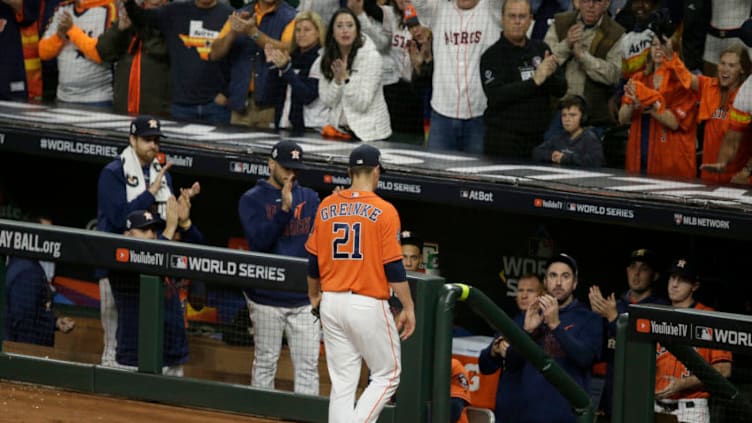
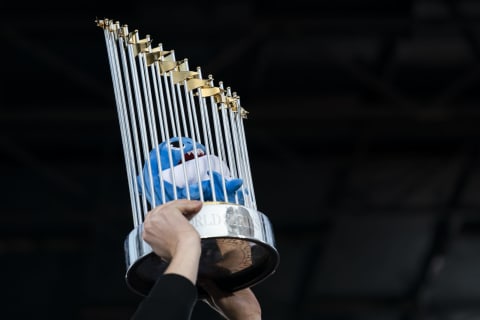
These 10 teams proved themselves superior during their regular seasons but came up losers in the MLB Postseason.
Before the MLB Postseason begins on Tuesday, it’s vital that one thing be understood. This month-long exercise is not about identifying and recognizing the game’s best team.
If that were the purpose, the post-season would involve only the half dozen teams that have established themselves as the best in their respective divisions. After all, if you’re not the best team in the NL Central, it’s not possible for you to be the best team in baseball.
More from Call to the Pen
- Philadelphia Phillies, ready for a stretch run, bomb St. Louis Cardinals
- Philadelphia Phillies: The 4 players on the franchise’s Mount Rushmore
- Boston Red Sox fans should be upset over Mookie Betts’ comment
- Analyzing the Boston Red Sox trade for Dave Henderson and Spike Owen
- 2023 MLB postseason likely to have a strange look without Yankees, Red Sox, Cardinals
No, the postseason is not about picking a champ. It’s about what everything else in America is about. It’s about the money.
That’s why the playoffs were expanded to 16 teams this season…to generate maximum revenue. MLB, the owners, and players will all derive more than half their season-long income from what is about to transpire over the next few weeks, the bulk of it from television rights.
There’s nothing new in that fact; it’s been obvious since MLB first admitted non-division winners to the playoff competition a quarter-century ago.
But it is important for fans, especially those of the really exceptional teams, to understand. Are you listening, Los Angeles Dodgers?
You and each of you are about to enter a world where events transpire in a vortex. The result is often unpredictability.
Since 2011 alone, the World Series has been won five times by a team that did not have the best record in its league. Three times that champion had the eighth-best record among playoff teams.
For details about the unpredictability of playoffs, we need look no further than 2019, when the Washington Nationals – a wild card entry – emerged as the champion. The Nats were one of those three winners who began play with the eighth-best record: their win total was exceeded by Houston, Los Angeles, New York, Minnesota, Atlanta, Oakland, and Tampa Bay.
The 2011 Cardinals and 2014 Giants also came out of the eighth starting gate to win it all.
Only four times in that same period has a team with the best regular-season record in its league won the World Series. Those four lucky survivors were the 2013 Red Sox, the 2015 Royals, the 2016 Cubs, and the 2018 Red Sox.
So beware, 2020 Dodgers (42-17 entering play Sunday) and Rays (39-20), there be demons ahead and they’re out to get you.
Here’s a look at the 10 best teams of the past decade that did not go on to win the sport’s ultimate prize.
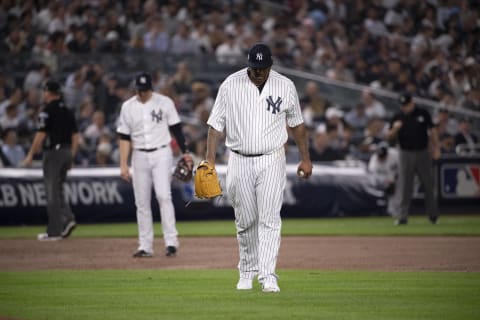
The 10th biggest MLB Postseason loser, the 2018 New York Yankees.
The 2018 Yankees did not win the NL East – that honor went to the eventual World Champion Red Sox. But they did win 100 regular season games. After five seasons of existing in that nether world of 85 to 90 wins, New York emerged revitalized in Aaron Boone’s first season.
Giancarlo Stanton, who came over the previous winter in a trade with Miami, hit a team-leading 38 home runs and drove in 100 runs. In his second full season, Aaron Judge added 27 homers, matching center fielder Aaron Hicks, Didi Gregorius, and Miguel Andujar.
Rookie Gleyber Torres, acquired in 2016 as the price for the Cubs’ half-season rental of Aroldis Chapman, contrib. uted 24 homers to the team’s total of 267, an MLB high.
Luis Severino won 19 of his 27 decisions, and Chapman saved 32 games.
The Yanks entered MLB Postseason play as co-favorites with Boston and dismissed Oakland 7-2 in the wild card game. That set up a division series showdown with the Red Sox, who had won a narrow 10-9 regular-season series with New York.
In that division series, the clubs split the first two games in Boston before the Red Sox made a 16-1 Game 3 statement that they were the better team. The fourth game also went to Boston, this time 4-3 when Red Sox closer Craig Kimbrel thwarted a ninth-inning New York rally from a 4-1 deficit, getting Torres to ground out with the tying and go-ahead runs in scoring position.

The ninth biggest MLB Postseason loser is the 2019 New York Yankees.
If Yankee fans were frustrated by the post-season events of 2018, that frustration could only have been doubled one season later. In 2019 New York entered the playoffs as AL East champions, finishing with 103 victories, seven more than runner-up Tampa Bay. Only Houston (107) and Los Angeles (106) won more regular-season games.
Injuries limited the availability of both Stanton and Judge, but the Yanks more than made up for that. They hit 306 home runs, one short of Minnesota’s all-time record total, with Torres contributing 38 and catcher Gary Sanchez 34.
Seven different Yankees topped 20 home runs. Veteran DJ LeMahieu arrived from Colorado to bat .327, and journeyman third baseman Gio Urshela blossomed into a .314 hitter with 21 homers.
Pitted against the Central winning Minnesota Twins, the Yanks made short work of a club they had dominated in post-season for 15 years. New York assaulted Twins pitching for 10-4, 8-2, and 5-1 wins, extending the Yankees post-season win streak against the Twins to 13 straight since 2004.
That set up an ALCS challenge of the titans with Houston. The Yanks breezed to a 7-0 Game 1 win behind Masahiro Tanaka and were locked in a 2-2 tie midway through the second game when everything turned on a single play.
LeMahieu was on second and Torres on first with two out in that sixth when Brett Gardner stood in against Justin Verlander. Gardner slapped an infield single off Astros second baseman Jose Altuve. But as LeMahieu attempted to score the go-ahead run, shortstop Carlos Correa recovered the ball and threw him out, preserving the deadlock.
The game continued deadlocked into the 11th inning when Correa homered off J.A. Happ to square the series. Houston won the next three games to eliminate the Yanks.
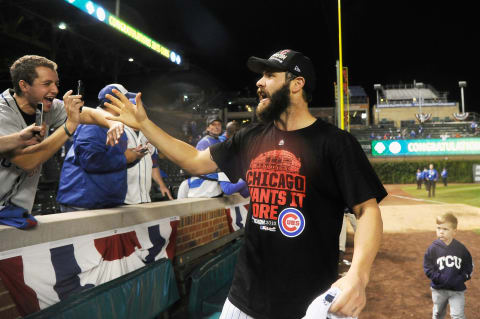
The eight biggest MLB Postseason loser are the 2015 St. Louis Cardinals.
The Cardinals were baseball’s best team in 2015. They won 100 games – five more than any other team – and dominated a division that also produced the 98-win Pirates and 97-win Cubs.
They had a 50.5 team WAR, the decade’s eighth best total among non World Series winners, and a 114.5 average OPS+/ERA+. That’s the decade’s fifth best among non-champs.
By every statistical measure, they should have won the World Series. Yet they failed to survive the National League division series. How?
In simple terms, the Cardinals were victims of the playoff system, which allowed good but plainly inferior teams into the competition. As holders of the league’s best record, they were automatically pitted against the survivor of a wild card game between the Pirates and Cubs – who as luck would have it had the league’s second and third best records.
The Cubs rode Jake Arrieta’s pitching to a 4-0 win over Gerrit Cole’s Pirates, then took out the Cardinals in four emotional games.
In the clincher in front of 42,000 partisans at Wrigley Field, Chicago spotted St. Louis a pair of first inning runs, then broke a 4-4 tie on Anthony Rizzo’s two-out home run in the sixth. One inning later Kyle Schwarber memorably homered over the scoreboard in right and the Chicago bullpen finished the job of consigning the division champions to the land of also-rans.
One week later the Cubs delivered further proof of the quirkiness of the MLB Postseason, losing the NLCS in four straight to the Mets. Chicago had beaten New York seven times in seven regular season tries.
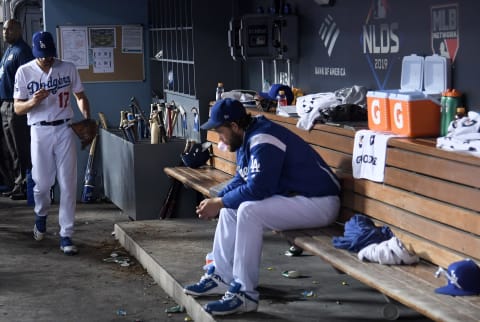
The seventh biggest MLB Postseason loser, the 2019 Los Angeles Dodgers.
Just as the Cardinals were baseball’s best team in 2015, so might the Dodgers have been in 2019. Certainly, they were no worse than second in that judgment, with an NL high 106 wins, a 52.1 WAR, and an average 117.1 OPS+/ERA+.
Only the Houston Astros over in the American League could match those numbers, Had there been any justice, the World Series would have pitted those two clearly superior teams.
It didn’t because the Dodgers failed to survive the caprice that is the division series. Here’s a fun fact that Dodger fans can sleep on: Since 2011, the team with the better regular season record has a 6-12 record in NLDS play.
There was no better illustration of the capricious nature of the NLDS than 2019 when both the Dodgers and Atlanta Braves fell to teams – the Nationals and Cardinals respectively – with inferior regular season records.
Through three games of their NLDS, things looked serene for the league’s best team. The Dodgers led two games to one and took a quick 1-0 lead off Max Scherzer when Justin Turner homered in the top of the first.
But that was the last LA would see of the lead that day. Washington rallied for a 6-1 victory. In the decisive fifth game, the Dodgers took a quick 3-0 lead and held it for seven innings, Walker Buehler and then Clayton Kershaw keeping the Nats in check. But in the top of the eighth, Anthony Rendon and Juan Soto hit back-to-back home runs off Kershaw to tie the game.
It remained a 3-3 tie into the 10th when Howie Kendrick’s grand slam propelled Washington to the stunning upset, which ousted the prohibitive favorites from the playoffs.
The Nats, of course, went on to win the World Series.
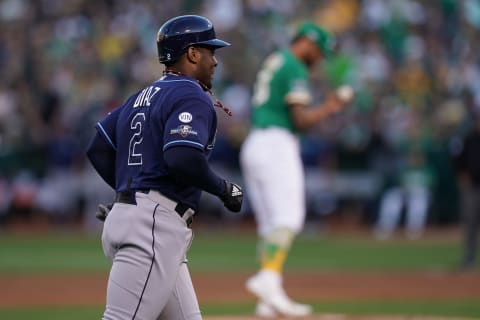
The sixth biggest MLB Postseason loser are the 2019 Oakland Athletics.
It would be easy, but wrong, to overlook Oakland. The Athletics may have been AL wild cards, but that was only due to the coincidence that they existed in the same division as the 107-game winning Astros.
With 97 regular season wins of their own, Oakland was a more than the worthy challenger in a league replete with strong teams. Look at their team 53.1 WAR, sixth best for the decade among teams that did not hoist a World Series banner.
Shortstop Marcus Semien and third baseman Matt Chapman both generated WARS in excess of 8.0; that’s MVP level. In fact, Semien finished third in MVP voting.
But the Athletics was a superbly balanced team. They had a 108 team OPS+ and also a 108 team ERA+. Mike Fiers went 15-4 and Frankie Montas compiled a 9-2 record before being suspended for half the season for a PED violation.
Returning in September from arm surgery, Sean Manaea went 4-0 with a 1.21 ERA. He was so impressive that manager Bob Melvin selected Manaea to start the wild card game against Tampa Bay.
But anybody can have a bad day and Manaea had him at the worst possible moment. The Rays touched him for four runs in just over two innings and eliminated the Athletics 5-1.
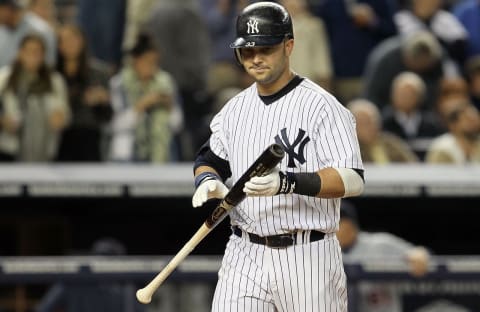
The New York Yankees (2011) return to the biggest MLB Postseason loser list.
The Yankees haven’t celebrated a World Series win since 2009, not that they haven’t had opportunities. The best may have come in 2011.
That Yankee team won a league-high 97 games and took the AL East pennant by six games over Tampa Bay. The 2011 club featured all the guys you love or hate: Alex Rodriguez, Derek Jeter, C.C. Sabathia, Mariano Rivera, and Robinson Cano, each in or close to their prime.
The Yanks were so imposing that Curtis Granderson – Curtis freaking Granderson! – hit 41 home runs.
Yet in the division round, the Yanks came up small against a very good Detroit Tigers team. A-Rod hit just .111, first baseman Mark Teixeira managed only .167 and both went homerless.
With the five-game series even at two games each, the Tigers touched Yankee starter, Ivan Nova, for a pair of first-inning runs and held on for a 3-2 victory. Trailing 3-2 with the bases full and two out in the bottom of the seventh, Nick Swisher whiffed to kill a potential series-winning rally.
In the bottom of the ninth, Tigers closer Jose Valverde set down Granderson, Cano, and Rodriguez on nothing louder than Cano’s lien fly to center to oust the pre-playoff favorites.
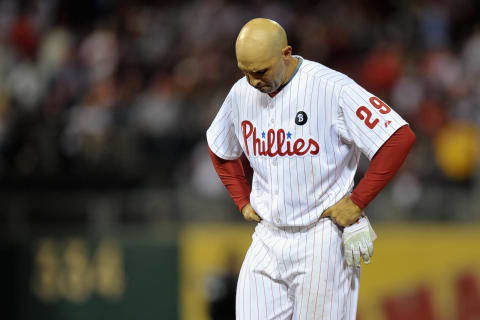
The 2011 Philadelphia Phillies join the biggest MLB Postseason loser list.
The 2011 season marks the Phillies’ most recent playoff appearance. It was also perhaps their most frustrating.
The Phils entered as winners of 102 games, six games better than any other National League opponent. Their dominant mound staff compiled a 127 team ERA+, led by starters Roy Halladay (163), Cliff Lee (160), Cole Hamels (137), and Roy Oswalt (104). How was anybody supposed to beat the Phillies when nobody could hit them?
The draw pitted Philadelphia against the wild card St. Louis Cardinals in the National League Division Series. It was a conspicuously bad bit of luck for the NL East champs, who had lost six times in nine regular-season starts against the Cardinals. In fact St. Louis was one of only two teams – Washington being the other – with a season edge on Philadelphia.
In the division series, the Cardinals demonstrated anew that they were immune to the Phillies’ talent advantage. The clubs split the first four games, sending the decision to a fifth game matchup between Halladay and Cardinal ace Chris Carpenter. The first Cardinal batter, Rafael Furcal, tripled off Halladay and the second, Skip Schumaker, doubled him home.
That was all the offensive damage Halladay would allow, but it was enough. Carpenter silenced Phillies offensive stars Chase Utley, Jimmy Rollins, and Ryan Howard on just three hits, none of them after the sixth inning. The 1-0 decision set St. Louis on a course to an eventual World Series win over the Texas Rangers.
The favored Phillies went home, where they have remained.
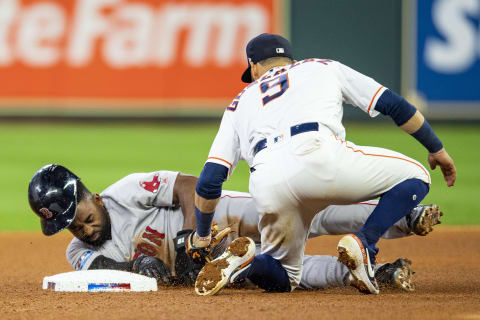
The third biggest MLB Postseason loser are the 2018 Houston Astros.
The Astros were defending World Series winners, having taken down the Dodgers in 2017. With 103 regular-season victories, they were an obvious threat to repeat, although Boston’s 108-win season made the Red Sox legitimate contenders as well.
The battle to represent the American League in the 2018 World Series shaped up as between those two superior teams, and that’s the way it played out. Houston swept Cleveland out of the division series while the Red Sox finished off the Yankees in four games (see above).
In the ALCS, Houston rode ace Justin Verlander to a 7-2 first game victory. Verlander allowed just two Boston hits through his six innings, leaving with a 3-2 lead. RBI hits by George Springer and Carlos Correa were also pivotal.
But that was all the series traction the Astros would get.
Over the next four games, Boston trailed only for one-half inning, out-scoring the Astros 27-14. During the 2018 regular season, Houston’s pitching staff – led by Verlander, Dallas Keuchel, and Gerrit Cole – had a 3.11 team ERA, the majors’ best. But in the ALCS, Boston batters worked that same staff over for a 5.52 ERA.
Boston went on to defeat the Dodgers in the World Series.
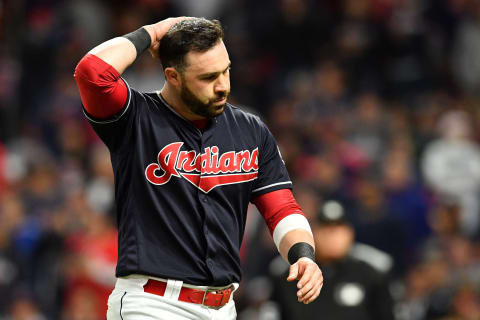
The second biggest MLB postseason loser are the 2017 Cleveland Indians.
The Indians are another of those teams it’s easy to overlook. But coming off their 2016 World Series loss to the Chicago Cubs, Cleveland won 102 games in 2017, taking the AL Central by 17 games.
During the regular season, the Indians compiled a 59.7 team WAR, second-best by any team – champion or otherwise — during the decade.
The secret was pitching. Corey Kluber was 18-4 with a 2.25 ERA, Carlos Carrasco also won 18 games against just six losses, and Trevor Bauer went 17-9.
Cleveland led the majors with a 3.30 ERA, allowing an MLB-low 3.48 runs per game. The Indians also allowed the fewest home runs, just 163.
The playoff schedule called for Cleveland to take on New York, which beat Minnesota in the wild card game, in the divisions series. The Yankees’ 91-71 regular-season record was dwarfed by Cleveland’s 102-60, and Cleveland looked by far the better team in taking a 2-0 advantage with 4-0 and 9-8 wins.
But Masahiro Tanaka pitched New York to a 1-0 win in the third game, and that shifted the momentum. The Yanks took a 5-0 lead in the fourth game and won 7-3, sending the series back to Cleveland. There a pair of Didi Gregorius home runs off Kluber gave New York a quick 3-0 lead and C.C. Sabathia – with considerable help from New York’s bullpen – made that stand up.

The biggest MLB Postseason loser? You guessed it! The 2019 Houston Astros.
The Astros’ recent success has been frequently – and justly – vilified by the team’s reliance on illegal sign-stealing methods during at least some of that stretch. But for pure talent, Houston’s post-season failures both in 2018 and 2019 illustrate the perilous journey that MLB postseason formula represents.
In 2019, the Astros appeared to successfully navigate the most difficult parts of the journey. After winning a majors’ best 107 games, the eliminated a very good Tampa Bay Rays team in a five-game division series.
More from MLB News
- MLB Power Rankings: Atlanta Braves still on top with major shifting below them
- Caesars MLB Promo Code: Two Shots at Picking the World Series Winner!
- MLB Power Rankings: Atlanta Braves still on top amid a big shake-up in top 10
- DraftKings MLB Promo: Bet $5 on an Anytime Home Run, Win $150 Bonus GUARANTEED
- MLB Power Rankings: After MLB trade deadline, gap is closing on Atlanta Braves
That threw them against the 103-win Yankees in the ALCS. Houston won in six games, establishing the Astros as prohibitive World Series favorites against the National League champions, the surprising wild card Washington Nationals.
But baseball is a funny game, particularly at the World Series level. The Nats swooped into Houston and took both of the first two games, defeating the Astros aces, Gerrit Cole and Justin Verlander, in the process.
Only when the Series traveled to Washington did the Astros assert their dominance. In three games played at the National League park, they out-scored the Nats 19-3, decisively reasserting their status as Series favorites. That sweep sent the Series back to minute Maid park for a sixth game in which the Astros were heavy favorites.
But in this series when neither home field nor favored status meant anything, the Nationals defeated Verlander 7-2 to square the series at three games each. In the seventh game, Houston scored a pair of early runs and Zack Greinke carried a 2-0 lead into the seventh.
dark. Next. Red Sox: Tanner Houck cements role for 2021
But Anthony Rendon homered, Juan Soto walked and after Greinke was lifted in favor of Will Harris, Howie Kendrick also homered to push Washington in front. The rest was all downhill: The Nats added three more runs to complete one of the biggest upsets in recent World Series history.